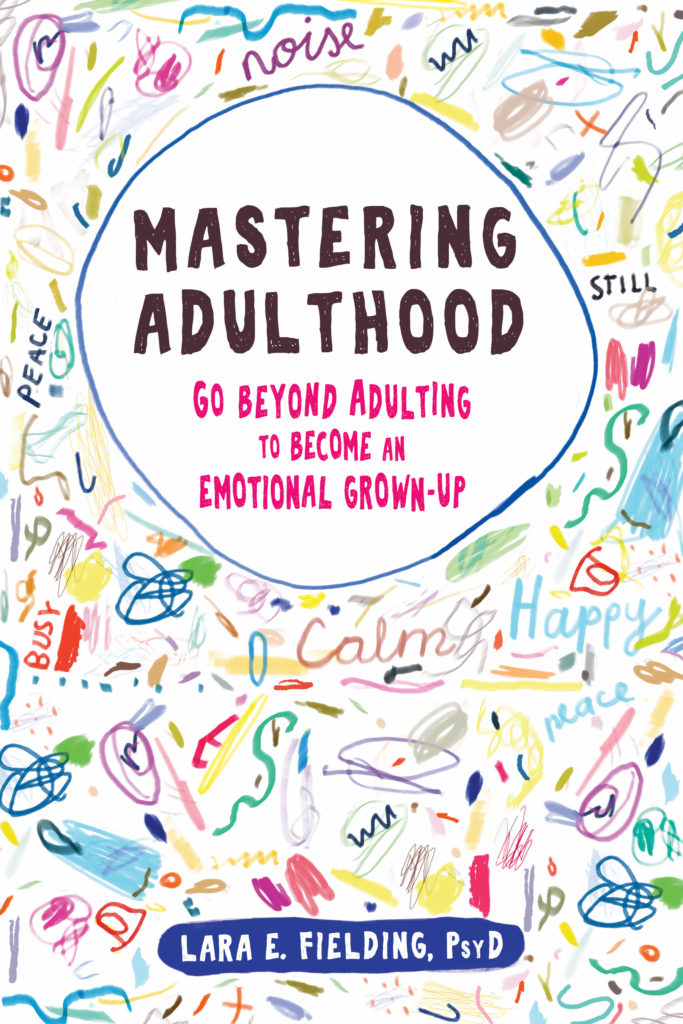Ever found yourself caught in a difficult dialogue with someone (maybe even with yourself), where emotions were escalating, and reasoning not helping? It can feel like a futile battle as you try everything to stomp out the flickering flames of emotion before a brush fire takes hold!
You try to focus on the positive, examine the pros and cons, problem solve for solutions, justify and rationalize, explain, compare, ANYTHING to get the emotions to CALM DOWN! So, does it work?
The unsatisfying answer is .. sometimes. The question is, why doesn’t it work all the time?
Because, when emotions get intense, or are linked to old passengers from past experience, the skill needed to defuse that trigger is radically counter intuitive. The skill you need is Validation.
Reasoning Works Sometimes.
One of the most natural autopilot reactions to strong emotions is to use reasoning to sooth the distress.
We reassure, “It will be okay.”
Minimize; “It’s not that big of a deal.”
Seek evidence to the contrary; “But there were all these things (listing the items) that show your worries are not founded.”
Or just plain old deny, “Nope, not true.”
Again, sometimes these methods can work to remind the other person (or ourselves) about the accurate facts (rather than thoughts) and thus contain an escalating emotion. With day to day small annoyances, or matters that are not so important to us, this change based approach works just fine.
Why Reasoning Doesn’t Work.
Can you recall a time when you wanted someone to understand something important to you, but it just didn’t feel like they were hearing you? If you know this frustration, you also know that your impulse is usually to react in some version of two alternatives.
Either we amplify our argument (people yell when they don’t feel heard). Or we shut down and give up (a behavior will stop if it is not reinforced). Neither of these produces skillful communication.
So you know from your own experience that when a communication feels important, efforts from the other party to dissuade or reason away your emotions are not effective. Their efforts may momentarily silence you, but they have not truly changed your viewpoint and feelings.
Validation as the Skillful Alternative.
Validation is the lubricant for skillful communication. Done correctly, it is an action of acknowledgment of the presence of difficult internal experiences (in yourself or someone else), without trying to change how they feel.
The Validation skill is an active practice similar to the Willingness Skill exercise in this Skill Clip, where we learned from experience that fighting emotions only makes them stronger. In today’s skill we access the emotion using our non-judgmental thinking skill to kindly honor the emotion/feelings.
Validation is NOT agreement. *
Often when first learning how to validate another’s perspective clients naturally react with “Wait a second, how can I validate something that I so utterly disagree with?!” So, it is essential to know what Validation is NOT:
• It is NOT agreeing.
• It is NOT cheerleading. (e.g. “Great job!” or “You can do it”)
• It is NOT approval.
Remember: Validation is finding a place where it makes sense that the other person is feeling how they feel, or thinking what they are thinking.
The Practice:
The key to using this skill effectively is to throw yourself all into being curious about where the emotion is coming from, so you may find a genuine place from which to non-judgmentally validate it.
Step I: Notice your own reaction. When you begin to feel the creeping feelings of judgment that someone (or yourself) is having strong emotions, the judgment can bring on feelings of anger/frustration or even anxiety. When this happens, practice…
Step II: Be Compassionately Curious. Ask yourself, could this heightened emotion be due to:
- The person’s BIOLOGY at moment? Biology shifts from moment to moment, day to day, season to season, it is not static and may be influenced by shifting hormones, recent substance use, lack of sleep, poor diet and exercise, illness, etc.
- ANYONE would feel that way? Some situations would cause anyone to experience strong emotions. (e.g. a recent death, loss, threat or stressor)
- 3. The person’s HISTORY? Could the topic or situation be sensitive to this person related to their passengers from past experience?
I use the acronym BAH to help my clients remember what to validate.
Step III: Compassionately Reframe the Judgments. Within any of these three possibilities, find the grain of truth where you may truly find compassion for the person’s strong feelings. Sometimes this is not so easy to do, as when we believe someone is being unreasonable. When this happens, we can practice validation by asking the person to explain better where they are coming from (e.g. “Help me understand.”).
Step IV: Communicate Understanding. Communicate this understanding in both what you say and how you say it!
- Body language: Lean in, maintain eye contact (no eye rolling!).
- Kind voice tone: The tone of our voice often has more impact on others than anything we are saying. Make sure there is no sarcasm or harshness in your tone.
- Express verbally: Say “I can understand why you feel this way.” Or “It makes sense from your view point.”
Notice How YOU Feel.
As with all of our skills, you are likely to notice that you feel differently in your body when you let go of struggling. This skill is no different. When we offer compassion and validation to another, we are letting go of being ‘right’ in the service of being effective.
At the end of the day, it is not really for them, but for our self. When we practice, we both let go of carrying the tension of judgment inside us and set the stage for more effectively getting our needs met.
Imagine how much more smoothly difficult communications could be negotiated if we were all skillful rather than reacting out of autopilot from past experience!
If you found this skill helpful, I hope you will share it with other’s who might benefit. If you have questions about how to be skillful in your life, I hope you will send me a message in the comments section! Or sign up for the new Mindful-Mastery Skill Clips on Youtube, SKILL WEEKLY newsletter, or follow me on Facebook, Twitter, or Instagram.
* These concepts are adapted from Marsha Linehan (1993)


